Edie Melson's Blog, page 20
March 25, 2025
Harnessing the Power of Smell in Our Writing
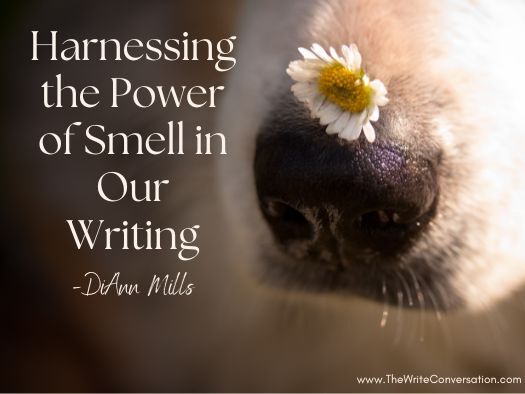
by DiAnn Mills @DiAnnMills
Sensory perception is a powerful tool in our writing, especially the sense of smell. What a character smells can—Affect memoryImpact life experiencesForm judgments—positive or negativeDestroy relationshipsSolve problemsImpact taste
Each literary element can be enhanced with the power of smell. When we overlook this gem, our story lacks an aspect that of what makes us alive.
CharacterizationA character’s reaction to smells often reveals personality and character. Smell can effectively be used to show culture, attitude, social status, character growth and change, and career preferences.
PlotSmell can lead and enhance the storyline. This sensory perception allows the writer to draw on memory, create and show settings, uncover environmental issues, and lead characters into more information about themselves or the storyline. Smell often deepens stress, conflict, and tension.
EmotionSmells are like time travel. They escort us back into our memories to evoke feelings the character might or might not want to relive. Our character experiences seven universal emotions: surprise, fear, anger, sadness, disgust, happiness, and contempt. The savvy writer links smells to these emotions, firmly rooting the reader in the character’s experience. Smells can also impact a character’s pain, guilt, loss, courage, betrayal, or triumph.
SymbolsSymbols are emotionally linked to the character to represent something intangible. Consider colors: does the character smell roses, a symbol of her grandmother, when encountering red? Symbols are often used to foreshadow events in the story that affect emotion as a positive or a negative.
DialogueHarnessing smells is a powerful tool to weave throughout the pages of a cleverly written story. What a character says appeals to the reader and adding a sense of smell to the dialogue builds the credibility of the scene.
When I was a child, I attended a family reunion in which I ate corn on the cob, a hot dog, and watermelon. On the four-hour drive home, I got sick and vomited the meal. To this day, I can’t handle the smell or the taste of corn on- the cob, hot dogs, or watermelon. The triggers make me nauseous, and I’m that kid again puking my guts out at the side of a road.
Writer, don’t hold back from using your personal experiences to add a touch of “flavor” to your story.
What about your characters? Do they have a fondness or an aversion to specific smells?
TWEETABLEHarnessing the Power of Smell in Our #Writing from @DiAnnMills on @EdieMelson (Click to Tweet)
 DiAnn Mills is a bestselling author who believes her readers should expect an adventure. She creates action-packed, suspense-filled novels to thrill readers. Her titles have appeared on the CBA and ECPA bestseller lists; won two Christy Awards; and been finalists for the RITA, Daphne Du Maurier, Inspirational Readers’ Choice, and Carol award contests.
DiAnn Mills is a bestselling author who believes her readers should expect an adventure. She creates action-packed, suspense-filled novels to thrill readers. Her titles have appeared on the CBA and ECPA bestseller lists; won two Christy Awards; and been finalists for the RITA, Daphne Du Maurier, Inspirational Readers’ Choice, and Carol award contests. She is the former director of the Blue Ridge Mountain Christian Writers Conference, Mountainside Marketing Retreat, and Mountainside Novelist Retreat with social media specialist Edie Melson. Connect here: DIANNMILLS.COM
March 24, 2025
Dipping the Quill Deeper: Humbler Beginnings (Part 2)
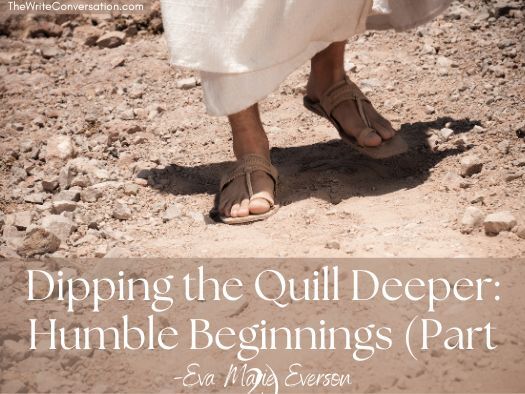
by Eva Marie Everson @EversonAuthor
I sort of slipped into this industry. I suppose one could say I saw an open door and I walked through it. That much would be true. But really, I slipped in through the back door.
In the late 1990s I belonged to a megachurch in the Orlando area. Every weekend, seven services. Every weekend lots and lots of people. There were ministries and small groups for nearly everyone imaginable, including ballroom dancing and sign language. About this time, I joined the drama ministry. We met every Tuesday night and were directed by a New York actor named Tim (last name withheld). Tim was brilliant. And fun. I thoroughly enjoyed my time with the group, which often performed sketches for the services.
One of the members of the troupe—we’ll call her Laura—approached me one evening during rehearsals, “Eva Marie, there’s a call for a writer for the children’s ministry. You should try out for that.”
“Why would I do that?”
“Because you have a gift for writing.”
Well . . . I did and I had always known that. But who had told Laura?
Sometimes Whims Arrive on the Lightest Breeze
Laura’s suggestion was so matter-of-fact, I almost discarded it. But then, on a whim, I decided to “try out” for the part of Children’s Ministry Writer, which required writing a new weekly sketch for the ministry team of actors.
I got the job. Each week, I wrote a sketch according to the director’s requirements. I sent it to him, he sent it back with edits, I rewrote, and voila! About a year went by when Laura approached me again. “A writers group is started here at the church. You should join.” She gave me the when and where and I penciled the date and time in on my calendar.
Long story short, unbeknownst to me, as five of us writerly people sat around a dining room table in Winter Springs, Florida . . . Word Weavers International was born (but becoming an international nonprofit was down the road a bit).
I had begun working on what would become my first novel. Soon I realized that front doors were closed to unknown novelists. But . . . back doors . . . ah. They were open. So, I wrote devotions for an online site, articles for an online ezine, and book reviews for Christian Retailing magazine.
One of those reviews was for a little-known writer named Jerry B. Jenkins. (Yes. I’m kidding. Everyone and his brother knew who Jerry B. Jenkins was (and is). His Left Behind books (cowritten with Tim LaHaye) lined the front shelves of every bookstore in the country. Possibly in most countries.)
Mr. Jenkins had written a book, Rookie, which was about a young baseball player with phenomenal skills. As one member of a baseball-loving family, I wrote my review using the sport’s terminology. Turned out, Mr. Jenkins liked the review enough that he inquired at the magazine, asking if he could email me a “thank you.”
Christian Retailing asked for permission to give him my email address. (Well, that was nice . . .)
As it turned out, I had met Mr. Jenkins previously. By that time, I had spoken at several Christian writing conferences—one where he was keynoting the Saturday night banquet. That afternoon, I went into the faculty “green room” for a snack and . . . there he sat. He, his agent, and his lovely wife.
Ohmygoodness. That’s Jerry B. Jenkins, author of the Left Behind series. Whatever you do, EM, don’t panic. Or giggle. Or faint.
I decided to bravely walk over to where he sat and introduce myself. But . . . wait . . . I wanted to make an impression. A memorable, unforgettable impression. I squared my shoulders, walked over to him, extended my hand for a shake, and said, “Hello, Jerry B. Jenkins. My name is Eva Marie Everson. You don’t know me, but you will.”
He laughed as his hand pumped mine. “Oh, I will?”
“Yes. You will.”
And then I left the room . . . and prayed for death.
When Death Didn’t Come
Now, here I sat at my office desk, reading a “thank you” email from Jerry B. Jenkins. Of course, I wrote him back. My email held a question, which he answered. Back and forth we went. Question asked. Question answered . . . until I dared send this message: Do you remember meeting someone at a writers conference who said you didn’t know her . . . but you would?
“Was that you?”
I admitted that it was. Then I boldly asked another question. “I understand that to be a mentor at the Jerry B. Jenkins Christian Writers Guild, one must first be asked by Mr. Jerry B. Jenkins.”
“This is true,” he wrote back.
“So,” I replied. “When are you going to ask me?”
Which is how I became a mentor for the JBJCWG.
This was a bold step (one I don’t necessarily suggest), but it had come after many tiny steps through several back doors. By this point, my first books were published, but I continued to write for smaller publications—ezines, online devotion sites, and book reviews. The small steps served me well. I now worked for and with one of the biggest dogs in the industry. And that dog taught me a lot . . . about the industry . . . about craft . . . and about humility.
One day a well-known novelist who was a longtime friend of Jerry’s said to me, “The Jerry before the Left Behind phenomena is the same Jerry you’ll meet today. Humble through and through.”
Years later, Jerry shared something with me. “Left Behind wasn’t even close to my first work. It was my 125th book. My first NY Times bestseller was my 75th book, which was a work of nonfiction.”
Yes. Humble beginnings . . .
“If you are faithful in little things,” Jesus said, “you will be faithful in large ones” (Luke 16:10 NLT).
TWEETABLEDipping the Quill Deeper: Humbler Beginnings (Part 2) from @EversonAuthor on @EdieMelson (Click to Tweet)
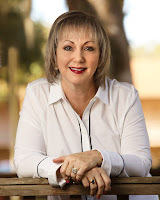 Eva Marie Everson is the CEO of Word Weavers International, the director of Florida Christian Writers Conference, and the contest director for the Blue Ridge Mountains Christian Writers Conference. She is the author of almost 50 books, both fiction and nonfiction. Her next novel, Beth Bettencourt, is set for release in 2026 (Kregel). To know more about Eva Marie (or to be added to her Southern newsletter), you can connect with her at www.EvaMarieEversonAuthor.com
Eva Marie Everson is the CEO of Word Weavers International, the director of Florida Christian Writers Conference, and the contest director for the Blue Ridge Mountains Christian Writers Conference. She is the author of almost 50 books, both fiction and nonfiction. Her next novel, Beth Bettencourt, is set for release in 2026 (Kregel). To know more about Eva Marie (or to be added to her Southern newsletter), you can connect with her at www.EvaMarieEversonAuthor.com
Dipping the Quill Deeper: Humber Beginnings (Part 2)

by Eva Marie Everson @EversonAuthor
I sort of slipped into this industry. I suppose one could say I saw an open door and I walked through it. That much would be true. But really, I slipped in through the back door.
In the late 1990s I belonged to a megachurch in the Orlando area. Every weekend, seven services. Every weekend lots and lots of people. There were ministries and small groups for nearly everyone imaginable, including ballroom dancing and sign language. About this time, I joined the drama ministry. We met every Tuesday night and were directed by a New York actor named Tim (last name withheld). Tim was brilliant. And fun. I thoroughly enjoyed my time with the group, which often performed sketches for the services.
One of the members of the troupe—we’ll call her Laura—approached me one evening during rehearsals, “Eva Marie, there’s a call for a writer for the children’s ministry. You should try out for that.”
“Why would I do that?”
“Because you have a gift for writing.”
Well . . . I did and I had always known that. But who had told Laura?
Sometimes Whims Arrive on the Lightest Breeze
Laura’s suggestion was so matter-of-fact, I almost discarded it. But then, on a whim, I decided to “try out” for the part of Children’s Ministry Writer, which required writing a new weekly sketch for the ministry team of actors.
I got the job. Each week, I wrote a sketch according to the director’s requirements. I sent it to him, he sent it back with edits, I rewrote, and voila! About a year went by when Laura approached me again. “A writers group is started here at the church. You should join.” She gave me the when and where and I penciled the date and time in on my calendar.
Long story short, unbeknownst to me, as five of us writerly people sat around a dining room table in Winter Springs, Florida . . . Word Weavers International was born (but becoming an international nonprofit was down the road a bit).
I had begun working on what would become my first novel. Soon I realized that front doors were closed to unknown novelists. But . . . back doors . . . ah. They were open. So, I wrote devotions for an online site, articles for an online ezine, and book reviews for Christian Retailing magazine.
One of those reviews was for a little-known writer named Jerry B. Jenkins. (Yes. I’m kidding. Everyone and his brother knew who Jerry B. Jenkins was (and is). His Left Behind books (cowritten with Tim LaHaye) lined the front shelves of every bookstore in the country. Possibly in most countries.)
Mr. Jenkins had written a book, Rookie, which was about a young baseball player with phenomenal skills. As one member of a baseball-loving family, I wrote my review using the sport’s terminology. Turned out, Mr. Jenkins liked the review enough that he inquired at the magazine, asking if he could email me a “thank you.”
Christian Retailing asked for permission to give him my email address. (Well, that was nice . . .)
As it turned out, I had met Mr. Jenkins previously. By that time, I had spoken at several Christian writing conferences—one where he was keynoting the Saturday night banquet. That afternoon, I went into the faculty “green room” for a snack and . . . there he sat. He, his agent, and his lovely wife.
Ohmygoodness. That’s Jerry B. Jenkins, author of the Left Behind series. Whatever you do, EM, don’t panic. Or giggle. Or faint.
I decided to bravely walk over to where he sat and introduce myself. But . . . wait . . . I wanted to make an impression. A memorable, unforgettable impression. I squared my shoulders, walked over to him, extended my hand for a shake, and said, “Hello, Jerry B. Jenkins. My name is Eva Marie Everson. You don’t know me, but you will.”
He laughed as his hand pumped mine. “Oh, I will?”
“Yes. You will.”
And then I left the room . . . and prayed for death.
When Death Didn’t Come
Now, here I sat at my office desk, reading a “thank you” email from Jerry B. Jenkins. Of course, I wrote him back. My email held a question, which he answered. Back and forth we went. Question asked. Question answered . . . until I dared send this message: Do you remember meeting someone at a writers conference who said you didn’t know her . . . but you would?
“Was that you?”
I admitted that it was. Then I boldly asked another question. “I understand that to be a mentor at the Jerry B. Jenkins Christian Writers Guild, one must first be asked by Mr. Jerry B. Jenkins.”
“This is true,” he wrote back.
“So,” I replied. “When are you going to ask me?”
Which is how I became a mentor for the JBJCWG.
This was a bold step (one I don’t necessarily suggest), but it had come after many tiny steps through several back doors. By this point, my first books were published, but I continued to write for smaller publications—ezines, online devotion sites, and book reviews. The small steps served me well. I now worked for and with one of the biggest dogs in the industry. And that dog taught me a lot . . . about the industry . . . about craft . . . and about humility.
One day a well-known novelist who was a longtime friend of Jerry’s said to me, “The Jerry before the Left Behind phenomena is the same Jerry you’ll meet today. Humble through and through.”
Years later, Jerry shared something with me. “Left Behind wasn’t even close to my first work. It was my 125th book. My first NY Times bestseller was my 75th book, which was a work of nonfiction.”
Yes. Humble beginnings . . .
“If you are faithful in little things,” Jesus said, “you will be faithful in large ones” (Luke 16:10 NLT).
TWEETABLEDipping the Quill Deeper: Humber Beginnings (Part 2) from @EversonAuthor on @EdieMelson (Click to Tweet)
 Eva Marie Everson is the CEO of Word Weavers International, the director of Florida Christian Writers Conference, and the contest director for the Blue Ridge Mountains Christian Writers Conference. She is the author of almost 50 books, both fiction and nonfiction. Her next novel, Beth Bettencourt, is set for release in 2026 (Kregel). To know more about Eva Marie (or to be added to her Southern newsletter), you can connect with her at www.EvaMarieEversonAuthor.com
Eva Marie Everson is the CEO of Word Weavers International, the director of Florida Christian Writers Conference, and the contest director for the Blue Ridge Mountains Christian Writers Conference. She is the author of almost 50 books, both fiction and nonfiction. Her next novel, Beth Bettencourt, is set for release in 2026 (Kregel). To know more about Eva Marie (or to be added to her Southern newsletter), you can connect with her at www.EvaMarieEversonAuthor.com
March 23, 2025
Characterization: Going Deeper with the Characters You Write Through Listening
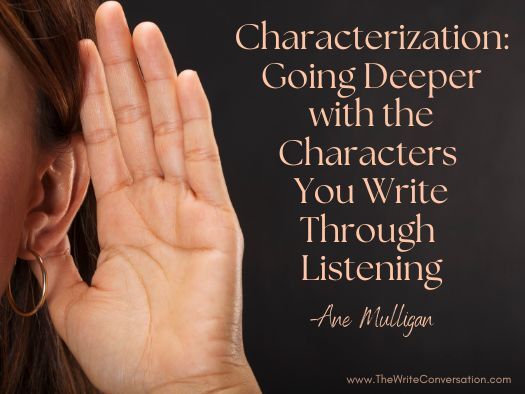
by Ane Mulligan @AneMulligan
I recently read an eye-opening blog about levels of listening, Crafting Characters Using the 7 Types of Listening —eye-opening because I hadn't fully examined that trait in characters.
As a theatrical director, I've seen scripts that made me laugh because the characters didn't listen/hear each other, and the dialogue had the characters talking over one another.
What a great trait to give a character for humor. But what about the other kinds of listening? Right now, I'm writing a character who has made a couple of vague responses to my Main Character. What if I made this a trait she employs for to get around problems?
The levels of listening are:
1. Not listening (ignoring)2. Pretend to listen (passive)3. Partly listening (selective—see your kids here?)4. Focused listening (attentive)5. Interpretive listening (understanding beyond the words)6. Ineractive listening (responsive)7. Engaged listening (emphatic & transformational)
For writing fiction, all listening levels can be used for our advantage when creating characters:
Levels 1-3 create conflict.
Level 4 creates either peace or tension. The listener focuses in, eyes narrowing. The speaker falters … BINGO. Tension.
Level 5 is what most of us do when we eavesdrop. We interpret—right or wrong—what the speaker means. This is useful for and in fiction.
What if a character is told to leave but interprets is as "get out of my life" and acts according to their interpretation? Instant conflict.
Levels 6-7 are what most writers incorporate in dialogue. We show all the characters active and engaged in conversation. But think what great results could come from using the others.
I know I'm going to play around with some scenes using the various levels then compare the outcomes.
Join the conversation. Have you used any of these various levels of listening in your work? How has it affected the scene?
TWEETABLECharacterization: Going Deeper with the Characters You Write Through Listening from @AneMulligan on @EdieMelson (Click to Tweet)
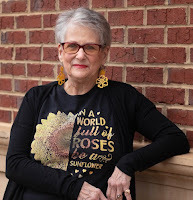 Ane Mulligan lives life from a director’s chair, both in theatre and at her desk creating novels. Entranced with story by age three, at five she saw PETER PAN onstage and was struck with a fever from which she never recovered—stage fever. One day, her passions collided, and an award-winning, bestselling novelist emerged. She believes chocolate and coffee are two of the four major food groups and lives in Sugar Hill, GA, with her artist husband and a rascally Rottweiler. Find Ane on her website, Amazon Author page, Facebook, Instagram, Pinterest, The Write Conversation, and Blue Ridge Conference Blog.
Ane Mulligan lives life from a director’s chair, both in theatre and at her desk creating novels. Entranced with story by age three, at five she saw PETER PAN onstage and was struck with a fever from which she never recovered—stage fever. One day, her passions collided, and an award-winning, bestselling novelist emerged. She believes chocolate and coffee are two of the four major food groups and lives in Sugar Hill, GA, with her artist husband and a rascally Rottweiler. Find Ane on her website, Amazon Author page, Facebook, Instagram, Pinterest, The Write Conversation, and Blue Ridge Conference Blog.
March 22, 2025
Finding Your Online Purpose and Working from There Instead of Chasing the Numbers
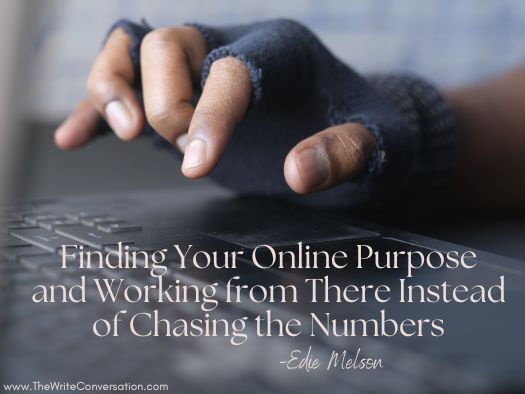
by Edie Melson @EdieMelson
Who is frustrated by online marketing—from email lists to websites, social media to Amazon keywords?
I think we can all agree we’re exhausted by the rat race. The world has us chasing an ever-changing target.
Let’s think about that statement for a moment.
THE. WORLD... has us chasing an ever-changing target.
I don’t see God anywhere in that sentence, do you?
Personally, I believe the world has sold us out when it comes to marketing. We have been told to be successful we need to grow our numbers, increase our reach, and find ways to get to our audience.
But what if we’re looking at things from the wrong perspective? What if none of this was part of God’s plan when He called us to share our words?
What if, His purpose for us is obedience, service, and love? Not growth, marketing, and sales?
God has given me personally a passage of Scripture—which is above my desk—to help me focus on HIS will for me and my interactions.
Do nothing from selfish ambition or conceit, but in humility count others more significant than yourselves. 4 Let each of you look not only to his own interests, but also to the interests of others. Philippians 2:3 – 4
Consider how our goals would change if we measure success from God’s perspective instead of the world’s?We would find joy as God is pleased with our obedienceWe would find contentment as we walk in the strength of our part in God’s planWe would find peace as we let go of the things that are not our responsibility
Here’s how I think things might go if we followed God’s path:
1. God would inspire us and we would obediently set down our words—sometimes spoken, sometimes written, sometimes set to music, sometimes through video.2. We would obediently let people know about our message—websites, podcasts, manuscripts, speaking.3. We would trust God to do HIS PART—guide us to the agent we need, who will find the publisher God chooses. We would NOT worry and stress and strive for numbers or position.We would NOT fall for the lie that we are entitled to a publisher or to a certain level of visibility.We would NOT allow envy, jealousy, or competition to enter our hearts and dominate our actions.4. We would serve the people God sets before us. Whether we have one or one thousand, we will be obedient. 5. We follow the purpose of our message as we share with those God sets before us. This doesn’t mean we don’t use the tools God has given us. We can trust God to do His part, but we must also do ours. And part of that is learning to use those tools.Social mediaMarketingSpeakingBloggingWritingProposal writingAmazon interfaces6. We would pray for the people who are currently reading our words and interacting with us.I know your anxiety and your thoughts:Publishers and agents tell us we MUST have numbersWho here has seen someone get a contract who does NOT have the numbers?
What we must not do is expect to be the one who dictates where our words and our message lands.
God is able to do what He says He will:
For by grace you have been saved through faith. And this is not your own doing; it is the gift of God,9 not a result of works, so that no one may boast. 10 For we are his workmanship, created in Christ Jesus for good works, which God prepared beforehand, that we should walk in them. Ephesians 2:8 – 10
God didn’t save us for fame and fortune. God didn’t call us to get richGod called us to the works HE ordained before the beginning of the world!
Consider this passage as it pertains to publishing and speaking:I planted, Apollos watered, but God gave the growth. 7 So neither he who plants nor he who waters is anything, but only God who gives the growth.8 He who plants and he who waters are one, and each will receive his wages according to his labor. 9 For we are God's fellow workers. You are God's field, God's building. 1 Corinthians 3:6 – 9
This publishing and speaking thing takes a lot of people—whether we’re going the traditional route or the indie route.
So how do we make sure we’re aligning with our purpose?
I have 12 questions to share to help drill into our writing purpose
1. What is my mission statement? You do have one, I assume. If not, it’s time to work on one. A mission statement is the perfect way to filter out noise and make sure we’re staying true to our calling. (Here’s mine: I believe God has a purpose for everyone’s unique story. I encourage others to live that story by telling stories of my own—through words and pictures. I’m a writer who feels lost without her camera and a reluctant speaker who loves to encourage an audience. All my books point to the transformational possibilities inside each of us when we tap into our God-given strengths)
2. How does my current project reflect either all or part of my mission statement?
3. Who is my audience?
4. Where is my audience?
5. What is God showing me through my current circumstances and how does that align?
6. What felt need(s) dovetail with the previous answers?
7. How much time do I have to spend on my current project(s)?
8. How much time do I have to spend online?
9. What are my favorite ways to interact? (written words, video, audio, images, graphics, etc)
10. What do I enjoy about being online?
11. What do I dislike most about being online?
12. How much time AM I spending with God daily?
I challenge each of us to spend some in depth time seeking God and realigning our purpose. Care to join me?
TWEETABLEFinding Your Online Purpose and Working from There Instead of Chasing the Numbers from @EdieMelson (Click to Tweet)
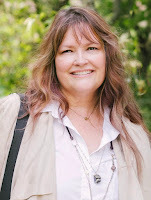 Edie Melson is a woman of faith with ink-stained fingers observing life through the lens of her camera. She’s a writer who feels lost without her camera and a card-carrying introvert who loves to encourage an audience. She also embraces the ultimate contradiction of being an organized creative. As a popular speaker, she’s encouraged and challenged audiences across the country and around the world. Her numerous books, including the award-winning Soul Care series reflect her passion to help others develop the strength of their God-given gifts and apply them to their lives.
Edie Melson is a woman of faith with ink-stained fingers observing life through the lens of her camera. She’s a writer who feels lost without her camera and a card-carrying introvert who loves to encourage an audience. She also embraces the ultimate contradiction of being an organized creative. As a popular speaker, she’s encouraged and challenged audiences across the country and around the world. Her numerous books, including the award-winning Soul Care series reflect her passion to help others develop the strength of their God-given gifts and apply them to their lives.She and husband Kirk have been married 43+ years, and live near their three sons and three grandchildren in the foothills of the Blue Ridge Mountains. Edie and Kirk can often be found with their big black dog hiking—Edie hanging off ledges for the best camera angle and Kirk patiently carrying her tripod. Connect with her on her website, WWW.EDIEMELSON.COM and through social media.
March 21, 2025
How to Inject Comedy Relief Into Your Story Without Killing the Mood

by Zena Dell Lowe @ZenaDellLowe
Adding comedic relief to a story is like seasoning a dish—you don’t want to overdo it, but without it, things can feel bland or overly heavy. A well-placed joke or humorous moment can make dark stories more digestible, sentimental stories more impactful, and all stories more enjoyable since we love characters that bring humor to our lives. But how do you weave comedy into your story without making it feel forced or out of place?
8 Key Techniques for Adding Comedy into Your Story
1. Comedy is About Surprise
At its core, comedy works because it’s unexpected. Surprise is the engine that drives humor. Whether it’s a twist on a familiar situation, a character reacting in an unpredictable way, or a punchline that catches the audience off guard, humor thrives on doing something the reader didn’t see coming.A serious warrior delivers an intense, dramatic monologue—only to get knocked out mid-sentence.A tense chase scene ends with the hero escaping, their identity still hidden… only to realize they’ve left their wallet behind.A character finally works up the courage to propose to the girl of his dreams, then suddenly sneezes and ruins the moment.
The key is to take what the audience expects and flip it. The more effective the misdirection, the bigger the laugh—as long as it rings true to your readers.
2. Let Your Characters Be Funny, Not the Story
Comedy relief works best when it emerges naturally from your characters rather than feeling like a gag inserted for the sake of laughs. A sarcastic sidekick, a deadpan hero, or a nervous wreck fumbling through tense situations can create humor that feels organic. Think of Han Solo in Star Wars—his quips aren’t just funny; they reflect his personality and his way of coping with stress.
3. Use Contrast for Maximum Impact
Humor works best when it plays against expectations. If your story is serious, small, unexpected moments of levity can be hilarious. A villain who gets winded from monologuing, a detective who always drops their coffee at the worst moment, or a horror movie character who complains about their phone battery dying (again) are all examples of contrast that make humor pop.
4. Timing Is Everything
Comedy relief should never undercut a dramatic moment. Let the tension sit for a beat before adding a joke, and make sure it enhances rather than disrupts the scene. A well-timed comedic line after an intense action sequence can give the audience a breather, but cracking a joke mid-monologue during an emotional confession can kill the impact.
5. Play with Repetition and Callbacks
A great way to integrate comedy into your story without making it feel random is to use running gags or callbacks. Maybe a character always uses the wrong idioms, keeps losing their keys, or has an ongoing feud with a squirrel. Repetition builds anticipation, making the punchline even stronger when it lands.
6. Leverage Physical Comedy
Physical humor isn’t just for slapstick. A character struggling to put on a too-tight jacket, failing to open a stubborn jar, or slipping on an icy sidewalk while still trying to look cool can be gold. Visual gags, awkward body language, and unintentional mishaps can add humor without needing a single joke.
7. Know Your Tone and Genre
Not every story needs the same level of comedy. A thriller might benefit from sharp, sarcastic humor, while a fantasy epic might lean into whimsical or absurd humor. If you’re writing a drama-heavy piece, subtle humor is usually better than outright slapstick. Make sure the comedic relief fits within the world and tone you’re creating.
8. Don’t Force It
The worst comedy is the kind that feels like it’s trying too hard. If a joke doesn’t feel natural for your character, scene, or tone, cut it. Comedy relief should feel like a natural part of the storytelling, not like a stand-up routine shoved into the middle of a novel.Final Thoughts
Well-placed comedic relief can make your story richer, your characters more engaging, and your audience more invested. Whether it’s through witty dialogue, situational humor, or a character’s quirky habits, the best humor feels effortless—even when it takes a lot of effort to get it right.
What are your favorite ways to add humor to a story? Let’s talk in the comments!
TWEETABLEHow to Inject Comedy Relief Into Your Story Without Killing the Mood from @ZenaDellLowe on @EdieMelson (Click to Tweet)
 Zena has worked professionally in the entertainment industry for over 20 years as a writer, producer, director, actress, and story consultant. Zena also teaches advanced classes on writing all over the country. As a writer, Zena has won numerous awards for her work. She also has several feature film projects in development through her independent production company, Mission Ranch Films. In addition to her work as a filmmaker, Zena launched The Storyteller’s Mission with Zena Dell Lowe, a podcast designed to serve the whole artist, not just focus on craft. In 2021, Zena launched The Storyteller’s Mission Online Platform, where she offers advanced classes and other key services to writers. Zena loves story and loves to support storytellers. Her passion is to equip artists of all levels to achieve excellence at their craft, so that they will truly have everything they need to change the world for the better through story.
Zena has worked professionally in the entertainment industry for over 20 years as a writer, producer, director, actress, and story consultant. Zena also teaches advanced classes on writing all over the country. As a writer, Zena has won numerous awards for her work. She also has several feature film projects in development through her independent production company, Mission Ranch Films. In addition to her work as a filmmaker, Zena launched The Storyteller’s Mission with Zena Dell Lowe, a podcast designed to serve the whole artist, not just focus on craft. In 2021, Zena launched The Storyteller’s Mission Online Platform, where she offers advanced classes and other key services to writers. Zena loves story and loves to support storytellers. Her passion is to equip artists of all levels to achieve excellence at their craft, so that they will truly have everything they need to change the world for the better through story.To find out more about Zena or her current courses and projects, check out her websites at WWW.MISSIONRANCHFILMS.COM and WWW.THESTORYTELLERSMISSION.COM
March 20, 2025
Writing Scared: Choosing to Write Anyway

by Edie Melson @EdieMelson
I’ve just come through a long year. The past twelve months were full to overflowing with family needs and requirements. Those commitments ate away at my creative writing time and left me struggling to even get the bare minimum accomplished.
But I survived—intact—if a little depleted and weary.
So, when I got ready to work on a new project I felt joy and excitement about returning to a regular writing schedule. I imagined pumping out words, digging deep into edits, and renewing my thrill of creating with words.
Then the fear hit.
Coming back to a blank screen hasn’t been the joy-filled experience I’d envisioned. It turns out, I’m out of practice and creative muscles are flabby. With the realization I wasn’t at the top of my game, fear took over. Those insidious voices that live in a writer’s head began a chorus of You’ll never come back.You won’t write anything worthwhile.Even if you do finish something—which is highly unlikely—it won’t be worth reading.No publisher will ever take a chance on you again. It’s time to toss in the writing towel, the pain won’t be worth the effort.
Yep, I have the same cruel voices living in my head as you have in yours.
This meant I was at a crossroad. Did I follow the advice of the voices or did I write scared?
I chose writing scared. Truthfully, I don’t have much choice. Even if I give up all “professional” writing, I can’t quit journaling and jotting down thoughts. I’m a writer, and even if I never regain the point where I had been, I’m still going to stay true to my call.
9 Things I’ve done and Am Doing to Keep Writing When I’m Scared
1. Pray first. I didn’t call myself to write. I didn’t create myself with a path of writing in my future. By starting every writing session with prayer first, I’m reminding myself WHO is my strength and my infinite well of creativity! Not sure what to pray? Visit this post on how to Pray Over Your Writing.
2. Rehearse and repeat positive words. Instead of rehearsing the things the ugly voices say, I remind myself of the good things that have come way from writing. These include:The things readers have said about my writingCritiques that have had encouragementArticles I’ve gotten publishedBooks I’ve gotten publishedThe joy I’ve felt when the words flowed and a project came together
3. Make a date. I tend to find “urgent” things to do around the house—like clean out my closet—when I have writing to do and I’m feeling insecure about writing. To combat that, I put my writing time in my bullet journal like a real appointment. Because it really is a real appointment!
4. Set goals. I tend to set my goals with time. For example: I will write from 9 – 11 on Monday, Friday, and Saturday. This works for me because when I’m writing scared the words don’t often flow freely. So I can leave a writing session feeling like I’ve failed if I have a word count goal. You may be different. Set goals that work for you, but SET THEM.
5. Be accountable. Even with the appointment made, I’m still creative about finding ways to avoid writing when I’m fearful. So I go one step further and enlist an accountability partner (or partners). These are other writers who will ask me for my word count and my progress.
6. Find an encourager. This is slightly different from the accountability, although sometimes they’re the same person. What I’m looking for is someone I can be honest with about my fears. This person will also speak honest encouragement to me, reminding me of things God has done through me.
7. Stay active in the industry. Read writing blogs, comment on social media posts from other writers. Join a local writing group and then attend the meetings. By surrounding ourselves with the writing community, we make it harder to quit. I also see that my fears aren’t unique to me. All writers have times when they struggle.
8. Take time to write for fun. Yes, I’ve been working on a specific project, but I’m also trying to recapture the joy of playing with words. So I may begin my writing time with a writing prompt or a challenge to write a poem, like a Haiku.
9. Go on a creative field trip. For me that means pulling out my camera and going on a photo walk. For others it may mean a trip to the bookstore or the library. Many are challenged creatively by watching a movie or visiting a museum. Do what inspires you and don’t fall for the lie that you’re wasting time. Recharging your creative batteries is never a waste of time.
10. Write anyway. The words may look like clods of dirt on the page. But exercising our creative muscles will pay off. The clunky words will morph into musical phrases. Just keep writing. Write the junk with the knowledge that the jewels will come.
Bottom LineThe only way we can fail as writers is to quit. So keep writing—when you’re scared, exhausted, and discouraged. Let the act of writing be the encouragement you need to fulfill your calling and once again recapture the joy.
Now it’s your turn. How do you write scared? What tips would you add to my list? Be sure to leave your thoughts in the comments section below.
Don’t forget to join the conversation!Blessings,Edie
TWEETABLEWriting Scared: Choosing to Write Anyway from @EdieMelson (Click to Tweet)
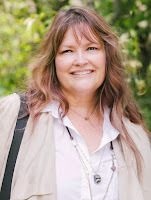 Edie Melson is a woman of faith with ink-stained fingers observing life through the lens of her camera. She’s a writer who feels lost without her camera and a card-carrying introvert who loves to encourage an audience. She also embraces the ultimate contradiction of being an organized creative. As a popular speaker, she’s encouraged and challenged audiences across the country and around the world. Her numerous books, including the award-winning Soul Care series reflect her passion to help others develop the strength of their God-given gifts and apply them to their lives.
Edie Melson is a woman of faith with ink-stained fingers observing life through the lens of her camera. She’s a writer who feels lost without her camera and a card-carrying introvert who loves to encourage an audience. She also embraces the ultimate contradiction of being an organized creative. As a popular speaker, she’s encouraged and challenged audiences across the country and around the world. Her numerous books, including the award-winning Soul Care series reflect her passion to help others develop the strength of their God-given gifts and apply them to their lives.She and husband Kirk have been married 43+ years, and live near their three sons and three grandchildren in the foothills of the Blue Ridge Mountains. Edie and Kirk can often be found with their big black dog hiking—Edie hanging off ledges for the best camera angle and Kirk patiently carrying her tripod. Connect with her on her website, www.EdieMelson.com and through social media.
March 19, 2025
Why Authors Should Enter Book Awards
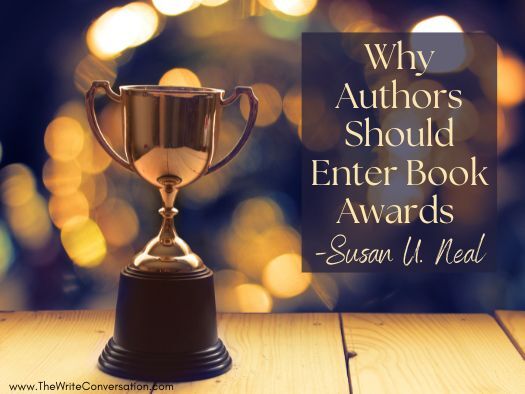
by Susan U. Neal RN, MBA, MHS @SusanNealYoga
By entering contests authors gain an edge in a competitive market. These contests not only provide well-deserved recognition but also open doors for expanded readership, increased book sales, and greater visibility in Christian publishing.
Two prestigious awards—the Christian Indie Awards and the Christian Authors Network (CAN) Excellence in Marketing Awards—honor excellence in writing and book promotion, providing incredible opportunities for independent authors.
If you’re a Christian author or small publisher, don’t miss the opportunity to showcase your work through awards. Mark your calendars and prepare to submit your book for a chance to be honored for your writing and marketing excellence!
Christian Indie Awards: Recognizing Exceptional Christian Books
Since 2008, the Christian Indie Awards have celebrated the outstanding contributions of Christian books from independent authors and small publishers. These awards highlight books that positively impact Christian life, giving authors the recognition they deserve. The 2025 winners include:
2025 Christian Indie Award Winners ChristianAward.com
Category
Place
Title
Author/Publisher
Anthology
1st
God’s Good Work: Stories to Treasure and Tales to Ponder
Lorilyn Roberts / Rear Guard Publishing
Bible Study
1st
Enough: Finding Contentment in a World of Wanting and Wandering
Lisa Lewis Koster / Credo House Publishers
Bible Study
2nd
Creation and the Flood:
A DEEP Study of Genesis 1–11
Samantha Mero
Bible Study
3rd
The Bible Companion Book 2: Leviticus-Deuteronomy
Karen Westbrook Moderow / Jordanwest Publications
Business Finance
1st
Thank God It’s Monday (?)
Tom C. Petersen / Morgan James Publishing
Children’s Picture Books
Tied 1st
The Dachshund Dash
Michelle Medlock Adams / End Game Press
Children’s Picture Books
Tied 1st
The Best Trophy
Jennifer Noel Wilson / Redemption Press
Children’s Picture Books
2nd
Twinkle, the Littlest Star
Leslie Colburn / Cross My Heart Press
Children’s Picture Books
3rd
The Tale of the Little Black Cloud
Karen Brough / Heart Hope Publishing
Children’s 8-12
1st
Fingerprint Devotions: 40 Devotions to Help You Realize You Are a Kid Uniquely Created by God
Sandra Kay Chambers
Children’s 8-12
2nd
The Forgotten Islands
Bryan Webb
Children’s 8-12
3rd
Jar of Tears: Moms Aren’t Supposed to Die
Kathleen Templeton / Lemons & Sunshine Press
Christian Education
1st
Redemptive Botany of the Bible
J. Christopher McMichael / Petra Press Publishing
Christian Education
2nd
Genocide Prophecy: Autism, the church and a New (American) Reich
Brian Haack
Christian Education
3rd
Creating Dynamic Podcasts & Audiobooks
Linda Goldfarb / Bold Vision Books
Christian Living
Tied 1st
The Higher Faith
Paul Balius / Hakodesh Publishing
Christian Living
Tied 1st
Only by Divine Design
Dorene Stark / Stellar Studio
Christian Living
2nd
Take Heart: The Overcomer’s Path Through Conflict
Gary Wooden / Covenant Books
Christian Living
3rd
No Other Gods
Marja Verschoor-Meijers / Frisse Kijk
Devotional
1st
Farmhouse Devotions: God’s Glory in the Ordinary
Cheryl Schuermann
Devotional
2nd
Focus: 45 Devotionals to Keep Jesus in the Picture
Dr. Katherine Hutchinson-Hayes (Author), Ms. Arianna Dunn (Author), Ms. Vonyee Carrington (Author), Mrs. Evelyn Collins (Author), Mrs. Monica Hopper (Author), Mr. Andy Hollifield (Author), Ms Michelle Davis (Author), Mrs. Kelly Anne Evans (Author), Dr. Rodney Combs (Author), Mrs. DiAnn Mills (Author) / Dressed in Love Press
Devotional
3rd
Joined by God: Unconventional Devotions for Christian Couples
Shellie Arnold / Kaleidoscope Publishing
General Fiction
Tied 1st
Fall Back and Find Me
Sarah Hanks
General Fiction
Tied 1st
Driving Timmy’s Car
Barbara Tucker Ketchum
General Fiction
2nd
Fallen Graces
Jim Sano
General Fiction
3rd
Ride A Summer Wind
Ann Cavera / Elk Lake Publishing
Gift
1st
5 Minutes of Gratitude
Gail Scoates
Gift
2nd
He Chose Me
Diamante Lavendar
Historical Fiction
1st
Winds of Ruach
D.M. Griffin
Historical Fiction
2nd
Petra: An Unbroken Legacy
Lisa L. Dorsey
Historical Fiction
3rd
But, Even Now
Jennifer Thomas and Denae Jones / Woodsong Publishing
Memoir / Biography
Tied 1st
God Had a Hand on Me, a Memoir About Pain, Healing, and Victory
Kim Dotson
Memoir / Biography
Tied 1st
Overlooked
Bridgette Cameron Ridenour
Memoir / Biography
2nd
Walking Mama Home: A Caregiver’s Journey
Aileen A. Gronewold / Blue Sage Press
Memoir / Biography
Tied 3rd
Beloved Outcast: The Quest for True Belonging
Cherie Denna / Bold Vision Books
Memoir / Biography
Tied 3rd
Travels of a Wimpy Mum: Finding courage through the Book of James
Vanessa Foran / 598 Press
Mystery / Suspense
Tied 1st
A Fifth Of The Story
Dr. Katherine Hutchinson-Hayes / End Game Press
Mystery / Suspense
Tied 1st
Sweet Deceit
Sally Jo Pitts
Mystery / Suspense
Tied 2nd
Tangled Secrets: A Suspense Thriller
S.F. Baumgartner / F.B. Publishing
Mystery / Suspense
Tied 2nd
Dead Weight: An Abbi Kincaid Suspense Novel
Kathy Cassel
Mystery / Suspense
3rd
The Lost Letter
Steve Feazel
Novella
1st
Who Will Rescue Us? A Love Story
Judy DuCharme / Ambassador International
Personal Growth
1st
The Making of a BraveHearted Woman: Courage, Confidence and Vision in Midlife
Dawn Damon / Bold Vision Books
Personal Growth
2nd
Praying the Word of Grace
Jonah Priour / Lovebuilt Press
Personal Growth
3rd
Slaying the Onion: Unveil the Layers of your Story to Reveal Your Highest Potential
April Ballestero / Kaleidoscope Publishing
Poetry
1st
Tales of the Captain
Christopher A. Hostettler
Relationships / Family
1st
Walking Mama Home: A Caregiver’s Journey
Aileen A Gronewold / Blue Sage Press
Relationships / Family
2nd
Raising Kids to Follow Christ: Instilling a Lifelong Trust in God
Lee Ann Mancini / Whitaker House
Romance
1st
Christmas in the Castle Library
Ann Swindell / WhiteCrown
Romance
2nd
Blind Date with a Book Nerd
Erica Dansereau & Britt Howard
Romance
3rd
Elizabeth’s Cross
Londa Hayden / Lighthouse Christian Publishing
Speculative
Tied 1st
Kill Shot
Angela L Gold
Speculative
Tied 1st
Eve of Chaos
D.I. Telbat
Speculative
2nd
Bright Eternity: A Novel
Daniel Zeigler
Theology
1st
Dear Saints: Catechesis on Sacraments
Jacob Huether
Young Adult
1st
Rise of the Y
Angela D. Shelton / Two Oaks Publishing
Young Adult
2nd
Fences Left Broken
Kristen Terrette / Elk Lake Publishing
The 2026 Christian Indie Awards will open for submissions on April 1, 2025 at https://christianaward.com/ for books published in 2023, 2024, and 2025. Winners of the Christian Indie Awards receive numerous key benefits:
An awards ceremony at the Blue Lake Christian Writers Conference.Media exposure with publicity sent to 400 Christian media outlets.Retailer placement opportunities, as winning books are included in a retailer book basket drawing at the Christian Product Expo trade show.The ability to display the award emblem on the book cover.Enhanced visibility through social media promotion and marketing opportunities.
Winning this award can significantly boost an author’s reputation, drawing more readers and increasing book sales. The added credibility also makes it easier to secure media interviews.Christian Authors Network (CAN) Marketing Awards: Honoring Excellence in Book Promotion
While writing a great book is essential, marketing plays a crucial role in reaching readers. The CAN Excellence in Marketing Awards recognize superior marketing and promotional skills among Christian authors. The 2025 winners include:
Christian Authors Network 2025 Excellence in Marketing Award Winners
Category
Place
Book or Ministry Title
Author
NONFICTION
Broadcast Media
1st
#NoFilter: Unmasking The Woman God Created You to Be
Jodi Hendricks
Physical Media
1st
I Am Not the King
Allen Taylor
Online Presence
1st
Praying Personalities: Finding Your Natural Prayer Style
Janet McHenry
Online Presence
2nd
Psalms in Rhyme for Little Hearts
Donna Wyland
FICTION
Online Presence
1st
A Fifth of the Story
Katherine Hutchinson-Hayes
Online Presence
2nd
A Gingerbread House
Julie Lavender
Physical Media
1st
The Dance of Easter
Sally Cressman
Broadcast Media
1st
The Sharing Sisters
Carissa Lovvorn
Authors who enter this contest not only compete for awards but also receive valuable feedback on their marketing campaigns, providing insight into ways to enhance their promotional efforts. Winners receive extensive publicity, including:
An announcement to 400 Christian media outlets, including several TV networks.Press releases sent to Publishers Weekly and ECPA (Evangelical Christian Publishers Association), expanding their reach within the publishing industry.A publicity packet featuring their book cover, description, and buy link sent to:20,000 Christian readers1,400 Christian retailers400 book review bloggersFeatures on the Christian Authors Network blog and various member blogs.Trophies and certificates presented at an upcoming conference.For Christian authors looking to grow their audience and establish themselves as serious contenders in the publishing industry, entering the CAN Marketing Awards provides an incredible opportunity for visibility and credibility. The awards open every September through November. So mark your calendars to enter at https://christianauthorsnetwork.com/marketing-award/.
TWEETABLEWhy Authors Should Enter Book Awards from @SusanNealYoga on @EdieMelson (Click to Tweet)
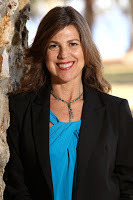 Susan U. Neal, RN, MBA, MHS: Susan’s mission is to improve the health of the body of Christ. She has her RN and MBA degrees, as well as a master’s in health science. She is a CERTIFIED HEALTH AND WELLNESS COACHwith the American Association of Christian Counselors. She published five books, the Selah award winner 7 STEPS TO GET OFF SUGAR AND CARBOHYDRATES, CHRISTIAN STUDY GUIDE FOR 7 STEPS TO GET OFF SUGAR AND CARBOHYDRATES, HEALTHY LIVING JOURNAL, SCRIPTURE YOGAa #1 Amazon best-selling yoga book, and YOGA FOR BEGINNERSwhich ranked #3. She published two sets of Christian Yoga Card Decks and two Christian Yoga DVDs that are available at CHRISTINAYOGA.COM. Her digital product HOW TO PREVENT, IMPROVE, AND REVERSE ALZHEIMER’S AND DEMENTIA is a great resource. To learn more about Susan visit her website SUSANUNEAL.COM You can also connect with Susan on FACEBOOK, TWITTER, and INSTAGRAM.
Susan U. Neal, RN, MBA, MHS: Susan’s mission is to improve the health of the body of Christ. She has her RN and MBA degrees, as well as a master’s in health science. She is a CERTIFIED HEALTH AND WELLNESS COACHwith the American Association of Christian Counselors. She published five books, the Selah award winner 7 STEPS TO GET OFF SUGAR AND CARBOHYDRATES, CHRISTIAN STUDY GUIDE FOR 7 STEPS TO GET OFF SUGAR AND CARBOHYDRATES, HEALTHY LIVING JOURNAL, SCRIPTURE YOGAa #1 Amazon best-selling yoga book, and YOGA FOR BEGINNERSwhich ranked #3. She published two sets of Christian Yoga Card Decks and two Christian Yoga DVDs that are available at CHRISTINAYOGA.COM. Her digital product HOW TO PREVENT, IMPROVE, AND REVERSE ALZHEIMER’S AND DEMENTIA is a great resource. To learn more about Susan visit her website SUSANUNEAL.COM You can also connect with Susan on FACEBOOK, TWITTER, and INSTAGRAM.
March 18, 2025
March Forward With Your Writing: No More Marking Time

by Kennita (Kay) Williams
“Be very careful, then, how you live—not as unwise but as wise, making the most of every opportunity, because the days are evil.”
As writers and Christian communicators, we have a holy assignment. We are not simply putting words on paper or speaking into the air—we are stewards of messages that God has entrusted to us. Whether we write books, devotionals, sermons, blog posts, or social media captions, our words have the power to bring life, encouragement, and direction to those who read or hear them.
Yet, how often do we delay? How often do we hesitate, second-guess, or allow distractions to steal the time God has given us? We talk about writing but don’t write. We plan to create but never create. We have ideas, but they remain trapped in journals or floating in our minds rather than reaching the people who need them.
Paul’s words to the Ephesians remind us to be careful with how we live—not wasting time, but using every opportunity wisely. The phrase “making the most of every opportunity” speaks to urgency. Time is not infinite. God gives us seasons, open doors, and divine moments where our words can be the very thing someone needs to hear. When we delay, we “mark time” (stay in the same position without making real movement.) We treat it as if we will always have it. But the truth is, we won’t.
Marching Forward with Writing in Obedience
In Joshua 6, we read about the Israelites marching around the walls of Jericho. God gave them clear instructions—to march around the city for six days, and on the seventh day, to shout. The victory was already secured, but they had to obey the process.
Imagine if they had stopped on day four because they were tired. Imagine if they had decided to march in their own way or doubted that their marching made a difference. The walls wouldn’t have fallen. The miracle wouldn’t have come.
As writers, we must learn to march forward in obedience, even when we don’t see immediate results. Some of us stop writing because we don’t have a book deal yet. Some of us stop speaking because we don’t have a large audience. Some of us hesitate to post online because we don’t get many likes or shares. But writing and communicating in obedience to God is about faithfulness, not fame.
Are you willing to march forward, trusting that God is working even when you don’t see it?
No More Excuses: The Time for Your Writing is Now
Ecclesiastes 11:4 (NLT) warns us, “Farmers who wait for perfect weather never plant. If they watch every cloud, they never harvest.” If you are waiting for the perfect time to write, it will never come. If you are waiting for life to slow down, for your confidence to increase, or for validation from others, you may never step into your calling.
God is saying, “The time is now.” Stop waiting for signs when He has already given you a word. Stop doubting whether you are qualified when He has already called you. Stop fearing failure when your job is obedience, not results.
When Moses doubted his ability to speak, God didn’t give him a new assignment—He reminded him that He would be with him (Exodus 4:10-12). The same is true for you. If God has called you to write, to speak, to share, then He will equip you. But you must be willing to move.
Practical Steps to Move Forward with Writing
1. Schedule Your Writing Time – Treat your calling with the same respect you would treat a work assignment. Set aside intentional time to write and create.
2. Silence Perfectionism – The first draft doesn’t have to be perfect; it just has to exist. Get the words out first, then refine them later.
3. Declare God’s Word Over Your Calling – Speak life over your gift. Say, “God has given me words to speak and write, and I will not be silent.”
4. Eliminate Distractions – Social media, unnecessary commitments, and even self-doubt can be distractions. Set boundaries to protect your writing time.
5. Trust the Process – You may not see the impact immediately, but trust that God is working through your obedience.
A Final Encouragement
Friend, you have been entrusted with a gift. The words God places in your heart are meant to be released, not hoarded. The world needs your message. Someone’s breakthrough is tied to your obedience. Someone’s healing will come from your testimony. Someone’s faith will be strengthened because of your words.
So, stop marking time by waiting for the right moment. The right moment is now. March forward in faith. Pick up your pen, open your laptop, speak into the microphone, and let the world hear the message God has placed within you.
Your obedience is not just about you—it’s about the lives you are called to impact.
Prayer:Heavenly Father, forgive me for the times I have delayed in obedience. I surrender my words, my writing, and my voice to You. Help me to march forward in faith, making the most of the time You have given me. Remove every fear, doubt, and distraction that hinders me. I trust that as I step forward, You will guide me. Thank You for the privilege of sharing Your truth. In Jesus’ name, Amen.
Now go—write, speak, and share. The world is waiting.
TWEETABLEMarch Forward With Your Writing: No More Marking Time from Kennita (Kay) Williams on @EdieMelson (Click to Tweet)
Dr. Kennita “Kay” Williams is a Visionary Leadership Coach, Author, Resilience Expert, and Wellness Advocate. Through her Business/Ministry, Clear Vision, she empowers leaders to navigate challenges, gain clarity, and lead with purpose. Dr. Kay’s mission is to inspire wholeness and healing. She can be contacted at www.clearvisionleader.com
March 17, 2025
Writers Write: How to Keep Writing When You Don’t Feel Like It – 5 Key Strategies

by Katherine Hutchinson-Hayes @KHutch0767
My mentor once impressed upon me the importance of consistency in writing, emphasizing that if I wanted to be a writer, I had to make it a non-negotiable part of my daily life—no excuses allowed. This advice resonated deeply, but it was my husband who truly took it to heart, encouraging me to create a dedicated home office space that would nurture my creativity and focus. His unwavering support has been instrumental in my journey, reminding me that every day I write, I’m one step closer to realizing my dream. Together, their encouragement has instilled in me a sense of discipline and determination that has become the foundation of my writing practice.
However, the truth is that even the most passionate writers face days when the words seem to hide. The blank page can feel more like a challenge than a canvas for creativity. However, writing isn’t just about waiting for inspiration to strike—it’s about building habits, embracing imperfections, and learning to push through even when motivation is low.
Five Key Strategies to Help You Keep Writing When You Don’t Feel Like It
1. Establish a Daily Writing Routine
One of the best ways to overcome a creative lull is to commit to a routine. By setting aside a specific time each day to write, you create a dedicated space in your schedule that becomes non-negotiable. Whether early in the morning or late at night, having a regular writing session trains your mind to expect and prepare for creative work. Even if you start with just 15 or 20 minutes, this consistent practice builds momentum, making it easier to transition into longer writing sessions.
Tip: Consider using techniques like the Pomodoro Technique—25 minutes of focused writing followed by a 5-minute break—to maintain productivity without feeling overwhelmed.
2. Embrace Imperfection and Free Write
Perfectionism can be a formidable barrier to writing. The pressure to produce flawless work on the first try can lead to endless self-editing and, ultimately, writer’s block. Instead, give yourself permission to write badly. The goal is to get your ideas on paper, not to create a masterpiece with every sentence. Allow your thoughts to flow freely without judgment.
Tip: Set a timer for 10 minutes and write without stopping. Don’t worry about grammar, style, or coherence. The focus is on generating content that you can refine later. Often, the act of free writing can unlock unexpected ideas and perspectives.
3. Use Writing Prompts and Exercises
When the well of inspiration feels dry, writing prompts can serve as a spark to ignite your creativity. Prompts are designed to bypass the internal critic and encourage you to explore new ideas or revisit forgotten themes. Whether it’s a single word, a question, or a scenario, prompts can offer the right nudge to get your creative gears turning.
Tip: Keep a list of favorite prompts or subscribe to a daily writing prompt newsletter. Over time, you might discover a specific prompt style that resonates with your voice, turning it into a reliable tool during creative droughts.
4. Create a Distraction-Free Environment
Your physical and digital surroundings profoundly impact your ability to focus. Establishing a dedicated writing space can signal your brain that it’s time to concentrate. Clear away distractions—whether that means turning off your phone, using noise-cancelling headphones, or setting up a tidy desk in a quiet corner of your home.
Tip: Experiment with ambient sounds or instrumental music to create a soothing backdrop that enhances focus. Over time, your environment will become a cue that helps transition your mind into creative mode.
5. Hold Yourself Accountable
Accountability is a powerful motivator. Sharing your writing goals with friends, joining a writing group, or using accountability apps can create a supportive structure that encourages consistency. When you know someone is aware of your commitment, it’s easier to push through the days when you’re less motivated.
Tip: Consider setting weekly or monthly targets for your writing output. Celebrate small victories, and don’t be too hard on yourself if you miss a day. The goal is progress, not perfection. Sometimes, even a short note or a paragraph is a step forward.
Writing is both an art and a discipline. While inspiration is invaluable, the habits you build can carry you through the inevitable moments of doubt and inertia. By establishing a routine, embracing imperfection, leveraging prompts, creating a conducive environment, and holding yourself accountable, you’re setting the stage for a sustainable writing practice—even on the toughest days.
Remember, every writer experiences lows. What sets you apart is your commitment to keep writing despite them. So, pick up your pen or open your laptop, and let your words flow—because writers write, no matter what.
TWEETABLEWriters Write: How to Keep Writing When You Don’t Feel Like It – 5 Key Strategies - @KHutch0767 on @EdieMelson (Click to Tweet)
 Dr. Katherine Hutchinson-Hayes is a review board member and contributor to Inkspirations (an online magazine for Christian writers), and her writing has been published in Guideposts. Her work in art/writing is distinguished by awards, including the New York Mayor’s Contribution to the Arts, Outstanding Resident Artist of Arizona, and the Foundations Awards at the Blue Ridge Mountains Christian Writer’s Conference (2016, 2019, 2021). She is a member of Word Weavers International and serves as an online chapter president and mentor. She belongs to FWA (Florida Writers Association), ACFW (American Christian Fiction Writers), CWoC (Crime Writers of Color),
Dr. Katherine Hutchinson-Hayes is a review board member and contributor to Inkspirations (an online magazine for Christian writers), and her writing has been published in Guideposts. Her work in art/writing is distinguished by awards, including the New York Mayor’s Contribution to the Arts, Outstanding Resident Artist of Arizona, and the Foundations Awards at the Blue Ridge Mountains Christian Writer’s Conference (2016, 2019, 2021). She is a member of Word Weavers International and serves as an online chapter president and mentor. She belongs to FWA (Florida Writers Association), ACFW (American Christian Fiction Writers), CWoC (Crime Writers of Color),AWSA (Advanced Writers and Speakers Association), and AASA (American Association of School Administrators). She serves on the nonprofit organization Submersion 14 board and the 540 Writer’s Community board and is an art instructor for the nonprofit organization Light for the Future. Katherine hosts the podcast Murder, Mystery & Mayhem Laced with Morality. She has authored a Christian Bible study for women and is currently working on the sequel to her first general market thriller novel. Her thriller A Fifth of the Story will debut in February 2024 through Endgame Press.
Katherine flourishes in developmental editing and coaching writers. She has a twenty-year career in education, leadership, and journalism. Katherine freelances as an educational consultant for charter schools, home school programs, and churches. In this role, she has written and edited curriculum, led program development, and helped manage growth facilitating and public relations. She also works as an editor and book coach through her consulting business. Katherine provides skill, accountability, and professionalism so clients can begin, develop, and finish their writing projects for publication.



